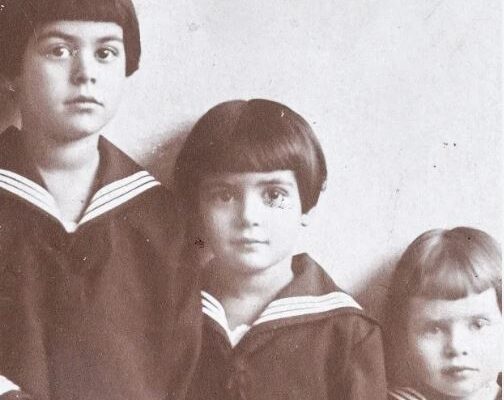My grandmother Sonja’s life story, particularly her escape from Nazi Germany, lies at the heart of my family’s collective identity. I had long accepted that the voices of her murdered family were permanently silenced. I was wrong.
My grandmother, Sonja Cowan, insisted she wanted no gifts for her 100th birthday.
Instead, she requested donations to World Jewish Relief, to support children whose lives have been shattered by tyranny and conflict.
“I’ve been through it,” Sonja said, in her particular German-Scottish intonation. “I know exactly what it’s like.”
Thankfully, she agreed to a party at her daughter’s home.
So, a few weeks ago, friends and four generations of Sonja’s family gathered to celebrate her remarkable milestone and evasion of Adolf Hitler’s genocidal grasp.
There was a table piled with bagels, cheese and cakes. We gave speeches and sang Yiddish songs late into the afternoon. Sonja held her two precious great-grandchildren close.
Sonja’s life story, particularly her escape from Nazi Germany in 1939, lies at the heart of my family’s collective identity. But until a few years ago, I accepted that the voices of her murdered family were permanently silenced.
I was wrong.
I would learn the hero at the heart of my grandmother’s survival was a woman cast into the margins of her past: Sonja’s mother.
Read the article by Benjamin Preiss in The Age.

